Got no time to read? Listen to our blog on the go
Overtime is unpleasant, especially when a lot of time gets spent on routine busywork and low-value tasks.
Yet, oddly enough, if you ask lawyers whether they’d like self-service processes, many would surely say, “Nope”.
It might seem strange, but there’s a reason for such an answer. But before we move on to why self-service may scare away lawyers, let’s define self-service and its role in the legal industry.
Self-Service Use Cases
Self-service means fully or partially eliminating legal’s involvement in routine administrative tasks by letting other personnel handle simple legal matters. Self-service may be used in:
- Customer support: For example, insurance companies can allow customers to file claims through a special portal, upload documents, or make appointments.
- Intake and triage: Self-service and automation allow legal teams to optimize the ways they accept requests and communicate with other parties. And by triaging from the beginning, duplicate requests and unnecessary emails can be eliminated, improving data tracking and analytics.
- Contract creation: By using pre-approved templates for simple documents such as NDAs and MSAs, non-legal teams can swiftly create fully compliant contracts without involving the legal department.
Self-service can save lawyers thousands of hours of office work. But many refuse to use it, primarily due to myths and stereotypes.
Common Legal Stereotypes About Self-Service

Change is scary, especially if there are claims that such a transformation will only cause problems. Unfortunately, self-service is no exception. Many myths exist that drag down self-service’s reputation.
Stereotype 1: More work for legal
Lawyers may believe they’ll still need to do the entire job, and that the only change is the software. They know how to deal with legal matters and their requirements, and business departments may have proven unable to handle such issues.
The truth is that even with automated workflows, legal still controls the process. But instead of doing the same repetitive job each time, they only need to set up the process. Their clients and colleagues won’t be able to change anything that shouldn’t be changed.
Stereotype 2: More confusing than helpful + steep learning curve
New software takes time and effort to learn. And once lawyers learn, they have to show other departments how to create agreements. Ultimately, they repeat the same job.
This can happen with difficult tools that have a poor design or unfriendly interface. Fortunately, modern self-service platforms are easy-to-use, and their intuitive design allows documents to be created in a few clicks.
Stereotype 3: Negatively impacts legal processes and compliance
Another common misconception is that legal will lose control instead of gain it. If anyone can create contracts, then how can you check changes and prevent compliance from suffering?
The answer is simple. Self-service uses only pre-approved templates, so compliance is ensured by the template and not the contract. And since legal has to approve the template and ensure it’s compliant, they effectively maintain control over all subsequence contracts.
Stereotype 4: Steals jobs
Some professionals may think that if there’s a solution that can do the job for them, the company won’t need them. Why keep them if artificial intelligence can draft and sign documents?
But there’s nothing to fear. It’s not as “self-service” as it may seem. Self-service handles most of the job, but lawyers are still needed to set up the process and adjust it as needed. AI takes responsibility for just routine work so that legal teams can focus on more high-value opportunities.
Stereotype 5: Destroys motivation to work
Some may think that if all work is completed by someone else, there will be a lot of free time. Managers often fear a doomsday scenario of people “going wild” and overindulging in time gained, letting important tasks go undone.
In reality, self-service assists with simple tasks, while people can work on more complicated matters. This allows your employees to concentrate on what’s more impactful for your business without staying overtime.
What Self-Service Really Means
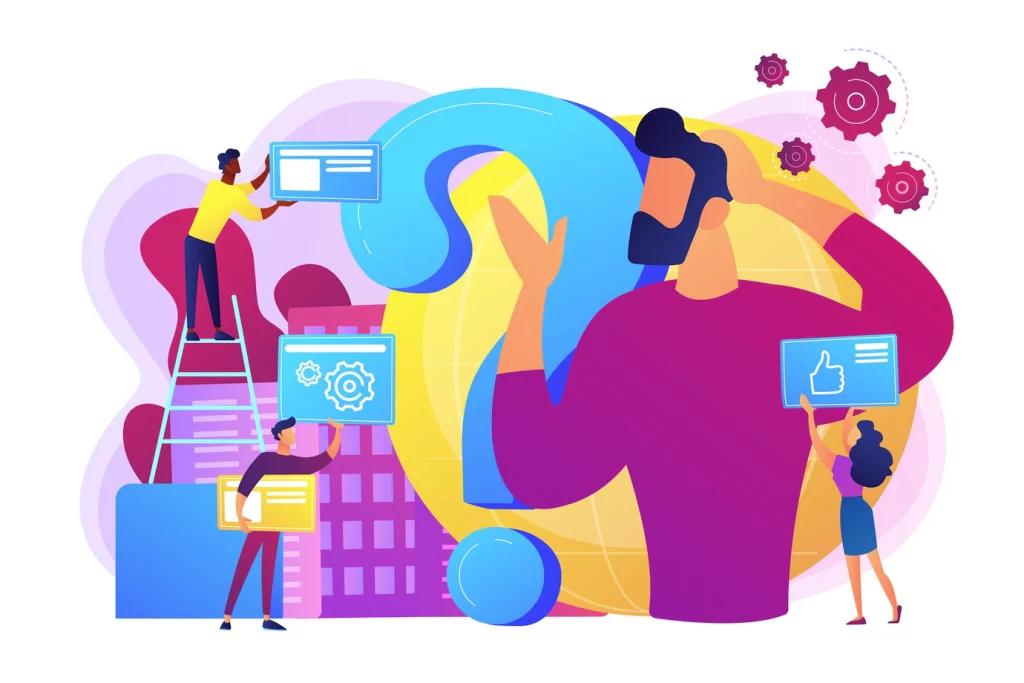
Up to now, we’ve been busting some of the myths about self-service. Now it’s time to dive deep into what self-service entails.
Process automation
First off, self-service is all about automating manual processes that require little input on the creator’s side. Instead, clients and users are put in the driver’s seat where they can handle the entire process on their own. All they need to do is fill in a couple of client-specific fields, click enter, and voila! They have a ready-to-use, 100% compliant document.
Less work for legal
Secondly, legal’s only real involvement is setting up the process, which can include approving any templates used, and analyzing documents after they’re executed. This saves valuable time for lawyers as they no longer need to be as involved. At the same time, departments are happier as they no longer face legal as a bottleneck.
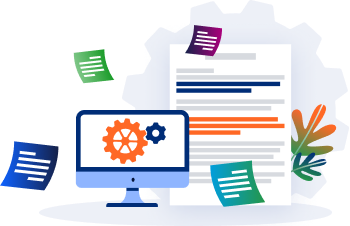
Self-Service Contracts Definition

Self-service means that departments and stakeholders are able to request, draft, and sign contracts and agreements with no involvement from legal teams. This process works only if the document’s template was approved by Legal.
Self-service means that departments and stakeholders are able to request, draft, and sign contracts and agreements with no involvement from legal teams.
Building off of that, self-service contracts are essentially contracts that are created and executed using approved, compliant templates without involving lawyers for review and approval.
With self-service instruments such as QuickDocs, you can enable lawyers to spend less time drafting and processing low-value, high-volume routine documents. Counterparties can instead initiate a contract’s acceptance without depending on anyone else to start the contracting process.
How self-service works
Automating workflows can reduce time spent to seconds and save you hundreds of thousands of dollars. By using pre-approved templates, all clients need to do is fill in their data and sign. Clients and non-legal times won’t be able to make changes to the contract, aside from to the client’s data.
Consequently, you get 100% compliant documents in seconds. Plus, bottlenecks get removed, compliance is improved, and streamlined processes create a more positive customer (and colleague) experience.
Business Benefits of Self-Service Contracts
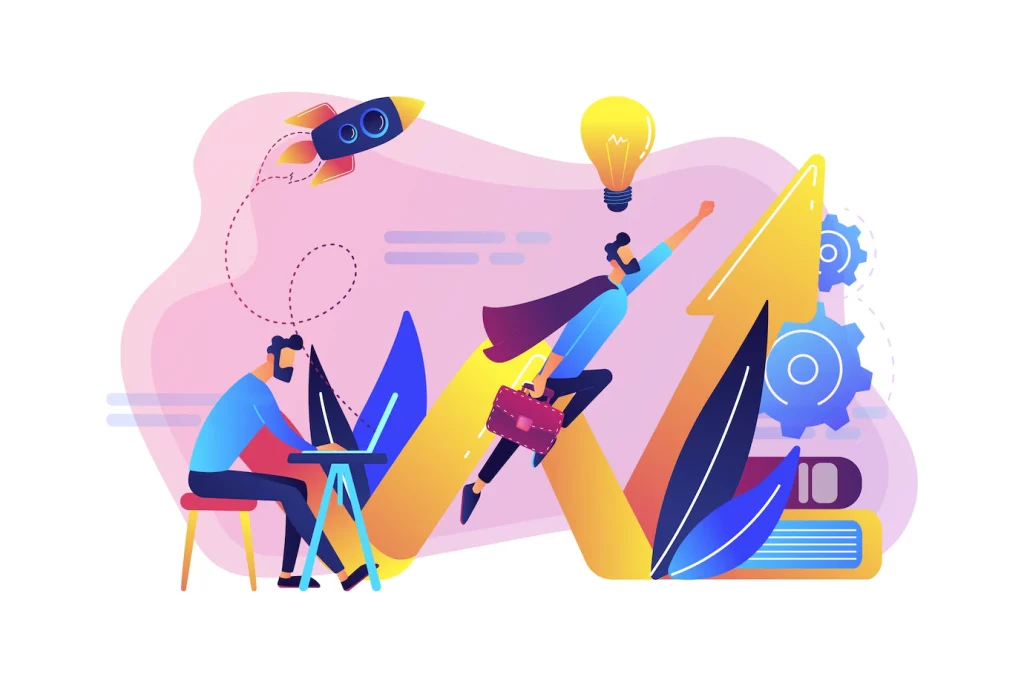
By speeding up legal matters, self-service contracts may become your competitive advantage. Here’s how it can increase performance:
Accelerated workflow
Perhaps the most noticeable thing about self-service contracts is how it accelerates the workflow. Pre-approved templates require little to no time and effort for editing and legal review. Adding the eSign feature will allow you to forget delays forever.
Greater focus on high-value work
Before self-service, legal teams spent a lot of time working with non-legal teams. While they lose time due to searching for or creating standard documents, other teams lose time waiting. Self-service makes both teams happy: legal can focus on more important matters, while other teams can carry on with their business.
Deals closed faster
Waiting for an NDA or sales agreement delays business. The more time you spend on paperwork, the fewer deals you close. Since no reviews or approvals are needed, self-service speeds up cycles for sales teams, allowing them to close deals quicker.
Simple management
Since self-service is best used for simple documents, it goes without saying that managing self-service is fairly straightforward. Any self-serviced document can function as a single, central source of truth, and all data is readily accessible at a moment’s notice. Plus, any individuals signing the document are guaranteed to be signing only the latest approved version.
Zero friction
Some of the major causes for friction between legal teams and other departments are delays in approval and review bottlenecks. Uniform contracts ensure Legal doesn’t need to spend multiple hours checking for compliance, which not only cuts down turnaround significantly, but also removes legal teams as a bottleneck.
Standardization
Templates guarantee a more standardized, uniform language. This prevents legal teams from inadvertently using different definitions or alternate terms for agreements, which helps compliance and mitigates potential risk or security issues. The only action required is clients filling in their data. Plus, having a uniform language helps legal teams navigate the contract text once they’re signed.
Better cost efficiency for simple agreements
Simple agreements such as NDAs, Terms and Conditions, or Influencer Agreements are vital parts of doing business, but they usually possess little to no value in terms of revenue. However, creating them still costs some amount of money, even if it’s a lawyer’s hourly rate.
For example, if we assume a lawyer’s rate is $90 per hour and a standard NDA takes at least 1.5 hours to draft, review, and file, that’s already $135. Repeat this for ten unique individuals and the cost balloons to $1,350.
And that’s on the low end.
Some NDAs can cost up to $450 per agreement, while organizations can process anywhere between 500 and 100,000 of such documents. In the worst-case scenario, you might find yourself forking over 45 million dollars.
Self-service documents would go a long ways toward reducing this price tag to a more manageable level, while the savings realized can be put towards more fruitful endeavors.
Who Can Use It?
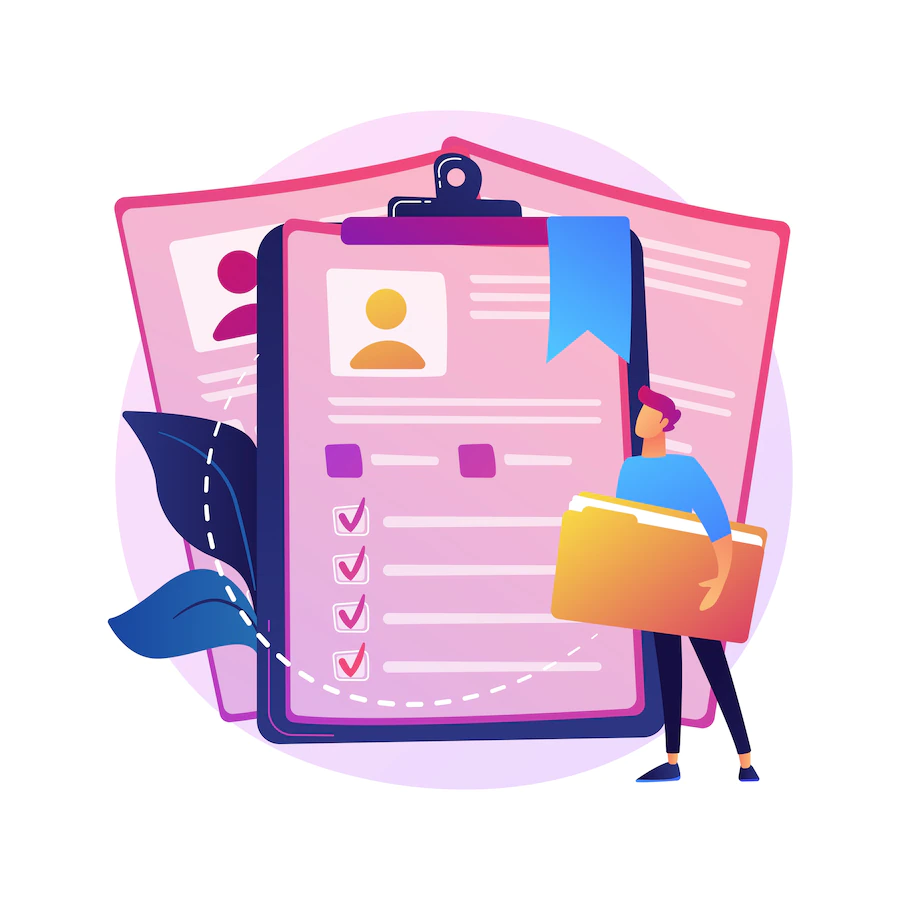
Working with contracts always used to be considered the legal department’s area of responsibility. But all departments deal with different types of documents. And in many cases, there’s no need to heavily involve lawyers.
Here’s a peek at how different departments can benefit from using self-service contracts.
Legal
Document reviews and approval duties fall on lawyers’ shoulders. Enabling self-service contracts, documents, forms, and letters can save them and other departments a huge amount of time. Standardized contract language reduces unnecessary revisions, allowing lawyers to easily process large volumes of data quickly
HR
Human Resources is highly involved in creating simple documents such as NDAs, freelancer agreements, invoices, and offer letters. Speed may be crucial in their work because, for example, if they fail to send an offer in time, candidates may accept a different employment offer.
Self-service solutions let your HR team hire and onboard faster by using document templates and sending new employees documents for e-signing. New hires can then fill in data and sign an NDA or offer letter.
Finance
Finance teams are responsible for company funds. Consequently, they deal with a lot of invoices, supplier agreements, and other sales documents. That’s why they also benefit from self-service. They can even use data from self-serviced contracts to complete budget and revenue projections.
Sales
Sales managers often use self-service for certain contracts, such as MSA and SaaS agreements. The sooner paperwork is in order, the better it is for sales teams and the business in general (successful sales = more revenue). Since contract represents 18% of the sales cycle, it can quickly drag everything down.
Automating simple agreements can help your sales department to leap forward and close more deals without needing to consult the legal team every step of the way.
IT
NDAs, DPAs, SOC-2 report requests, and service contracts are an integral part of IT departments. Not to mention, IT works a lot with data, and they have a massive impact on private data. As a result, they face strict requirements regarding data protection as all documents must comply with the General Data Protection Regulation (GDPR) law. Self-serviced contracts with pre-approved templates ensure compliance with all requirements, whether it’s GDPR or general cybersecurity.
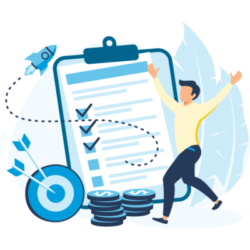
Case Studies
For a better understanding about how big a difference self-serviced contracts can make, here are some examples regarding how they’ve been used.

Slack is a well-known corporate communication and messaging platform with more than 1.5k employees. Previously, their manual document management took 30 minutes to draft a simple NDA. Lawyers were involved even for drafting typical documents. Before QuickDocs, this is how their process looked:
- Legal teams manually exchanged DPA templates with customers.
- Legal ops had to review and fix DPAs that were incorrectly completed.
- Tracking which workplaces had submitted a DPA consumed a lot of time and effort.
After starting to use QuickDocs, this is their current process:
- A separate landing page with a fully self-service, customer-oriented process where Slack’s customers input all necessary DPA data on their own.
- After the DPA data is filled in, it goes directly to AXDRAFT Sign (our own e-signature platform).
- Setting up pre-signed templates accelerated the process 1,600%.
Almost 2,000 working hours and $160k+ were saved. In addition, document exchange began to be conducted safely and securely.

Vimeo is one of the world’s leading all-in-one video software platforms where users create, manage, and share videos.
Before self-service, this was their situation:
- Legal teams manually exchanged Data Transfer Agreement (DTA) templates with customers.
- Legal ops had to review and fix DTAs that were incorrectly completed.
- Legal reps had to spend considerable time checking and fixing easily avoided errors.
- Approval, finalizing, and signing were done manually, which took a lot of time.
After switching to self-service:
- Vimeo received a landing page where their customers can draft ready-to-use DTAs.
- Vimeo’s lawyers no longer had to be as involved.
- Document creation time decreased by 100%.
They managed to save $54k and 240+ hours a year.

Сolpal is a leading global consumer products company. They develop, produce, and sell essential health, hygiene, and pet nutrition products. Their lineup includes brands such as Colgate, Palmolive, Ajax, Axion, and Fabuloso.
Before self-service:
- Sending documents back and forth to counterparties made it hard to communicate changes.
- Manual redlining required too much time and slowed down the approval process.
- Legal reps had to deal with routine work instead of more valuable tasks.
After self-service:
- A separate landing page with a fully self-service, customer-oriented process allows ColPal’s vendors to input all necessary NDA data on their own.
- AXDRAFT Sign, where NDAs go after their data is filled in, helps eliminate delays in approvals.
- All processes were sped up by setting up templates pre-signed by ColPal.
As a result, it saved them 600 hours and $54k+ in a year.

Onit is a global leader of enterprise software, artificial intelligence, and products for legal, compliance, sales, IT, HR, and finance departments.
Before self-service:
- Business teams had to manually request NDAs for SOC reports from legal teams.
- Legal teams then had to approve them.
- Sending documents back and forth to counterparties made it hard to communicate changes.
- The entire process was manual and required too much involvement from legal reps.
After self-service:
- A separate landing page with a fully self-service, customer-oriented process allows counterparties to input all necessary NDA data on their own.
- AXDRAFT Sign, where NDAs go after their data is filled in, eliminated delays in approvals.
- Setting up pre-signed templates accelerated processes.
After signing an NDA, the counterparty receives the signed NDA by mail along with an SOC report. This still saves Onit 40 hours per month and tens of thousands of dollars per year.
Necessary Features of Self-Service Tools
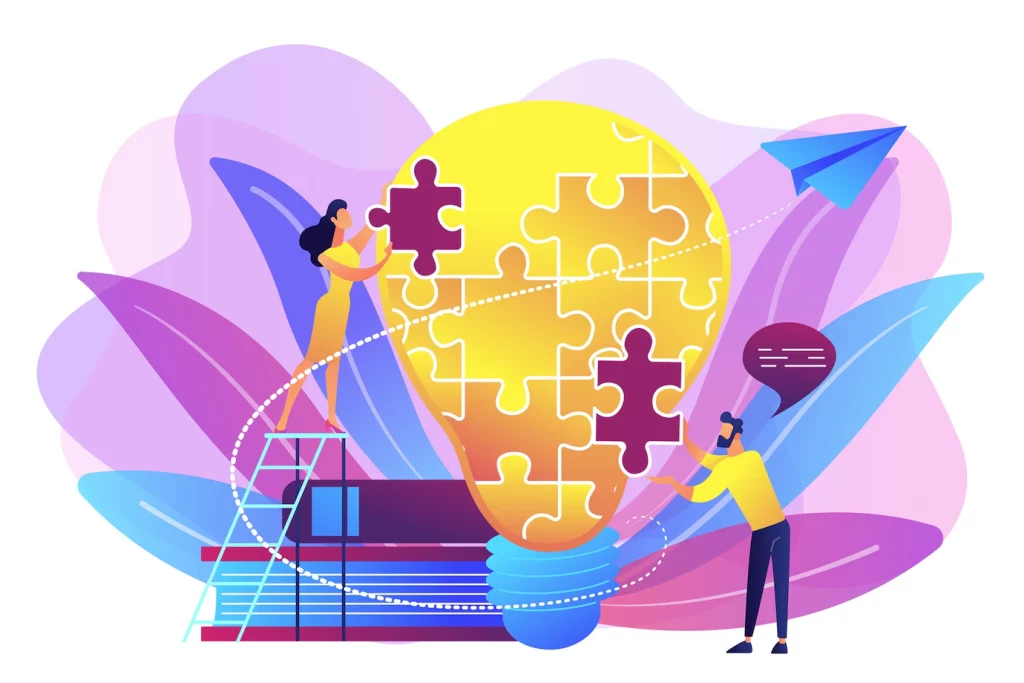
If you’d like to start, but don’t know the requirements for converting a contract to a self-service contract, the information below should help.
It should be simple. The service you select needs to be user-friendly so that people can quickly pick it up. If it’s not, it will only add work for lawyers as they’ll need to help and explain the same things to each of their non-legal colleagues.
Compliance by template. Approving a template should be enough to ensure compliance. That way, lawyers won’t have to review the whole contract. If a template uses clause language and meets the most up-to-date requirements, it doesn’t need any additional adjustments, allowing it to be sent directly to customers and signed.
Standardized custom clauses. You may run into a situation where you need to add a specific clause due to the person’s jurisdiction, or some other reason. Point is, unexpected cases happen all the time and you should be ready. Plus, being able to standardize language, terms, and conditions will help legal teams navigate text quicker while avoiding security and compliance risks.
eSign. Leveraging this feature accelerates the approval process and you can receive the necessary signature faster. You won’t have to wait until the right person is found to sign the contract.
Public-facing templates. Commercial and legal teams should have easy access to your templates, as well as your customers. Public-facing templates eliminate the need to create accounts for your customers. All you have to do is send them a link to the document where they can fill in the necessary information.
Good contract management platforms usually offer such functions, making it quick and easy for businesses to transform a workflow into a self-serviced one.
Conclusion
Contract processing, signing, and delivery can turn into hours because of bottlenecks caused by minor change reviews. It makes everybody wait, stealing the time of everyone involved in the process. By using self-service, you’ll quickly forget about this inconvenience.
AXDRAFT QuickDocs is a sophisticated self-service document automation platform that allows you to go from 30 minutes on average to 0 minutes spent on drafting and signing simple contracts such as NDAs, DPAs, sales agreements, or SOC-2 report requests. The platform fully eliminates the need for lawyers to be involved, and guarantees that your teams use 100% compliant, perfectly structured legal documents.
The legal technology market is packed with plenty of amazing contract lifecycle management solutions, but QuickDocs has some unique features:
- Every contract that has ever been drafted goes to a centralized storage and can be easily assessed for your team for as long as you need it. You can find it via in-text search or metadata, making all data close at hand to analyze and report.
- Document and form branding will help both the template and your final documents will match your corporate style.
- With the help of question-based drafting, your client’s answers will help our software create the final document.
- Public templates allow you to embed a link to the document on your website.
- An unlimited number of documents means no additional payment for any number of documents you’d like to store.
If you’d like to know what QuickDocs users experience is, try our instant demo!
Interesting Related Posts
- 6 Ways How Self Service Document Automation Will Transform Your Legal Practice
- Estimating the ROI of QuickDocs: Are Self-Service Contracts Worth It?
- How QuickDocs Empowers Business Teams to Work With Documents Like Real Lawyers
- Draft the World #7: The Tale of the Office Jungle, and Self-Service Contracts [Comics]
FAQ
Self-service contracts are contracts that are based on pre-approved templates and can be created automatically with minimal involvement of the legal team.
Yes, they are legal as they are based on templates created and approved by the legal team, and they meet all regulatory requirements.
It can be MSAs, NDAs, service agreements, software license agreements, employment offer letters, influencer agreements, SaaS agreements, and more.
Send the client a link to a pre-approved, signed template. They fill in all the data, then submit and sign the document. They get a signed and approved contract sent through email seconds later. The entire process takes less than 5 minutes and requires zero involvement from your legal team.